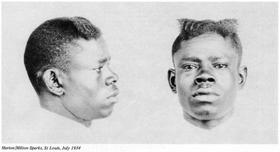Stories of Standards: Every Day I Have the Blues

Tune in to Jazz with Victor Cooper – weekdays from 6-9 a.m. MT – for Stories of Standards to hear our favorite versions of this song all week long starting Monday, July 9!
Stories of Standards is sponsored by ListenUp - If you love music, you’ll love ListenUp.
“Every Day I Have the Blues” was a 12-bar blues song written by brothers Pinetop Sparks and Milton Sparks, first recorded 7/28/1935 by Pinetop with Henry Townsend on guitar. In 1949 Memphis Slim recorded a version under the title “Nobody Loves Me” using only the melody and first verse along with new lyrics for the remainder, without the falsetto of the original. Subsequent recordings restored the title, but kept the alternate verses and lack of falsetto, while attributing authorship to Memphis Slim Chatman. According to Colin Escott, those royalties “were sufficient to buy a Rolls Royce with which to squire himself around Paris.” The 1950 album by Lowell Fulson and Lloyd Glen was the first to achieve fame, staying on the R&B charts for 23 weeks. Four recordings reached the Top Ten on Billboard’s R&B chart; two 1955 recordings (one by Count Basie/Joe Williams and another by B. B. King) received Grammy Hall of Fame Awards, the first awarded in 1992, the second in 2004.
Twins Aaron “Pinetop” Sparks and Marion (or Milton) “Lindberg” Sparks were born 5/22/1910 with the surname Gant; when their mother remarried they took their stepfather’s surname of Sparks. They moved from Mississippi to Saint Louis, Missouri, in 1920 whereas teenagers they formed a group with Aaron playing the piano and Marion singing, guitarist Pete Bogans and trombonist Ike Rogers. Their sister Jimmie Lee was said to have a wonderful singing voice but never recorded. Pinetop died 11/5/1935, possibly of poisoning, although his brother said that it was exhaustion; Pinetop never turned down a gig and drank heavily to stay awake. Lindberg, who served time in a workhouse in 1937 for killing a man in self-defense, died of a heart attack in 1963. Pinetop’s grave was unmarked until 2014, when the Killer Blues Headstone Project placed a marker in the Father Dickson Cemetery in Crestwood, Missouri.
9(MDA3NDU1Nzc2MDEzMDUxMzY3MzAwNWEzYQ004))
Become a Member
Join the growing family of people who believe that music is essential to our community. Your donation supports the work we do, the programs you count on, and the events you enjoy.
Download the App
Download KUVO's FREE app today! The KUVO Public Radio App allows you to take KUVO's music and news with you anywhere, anytime!